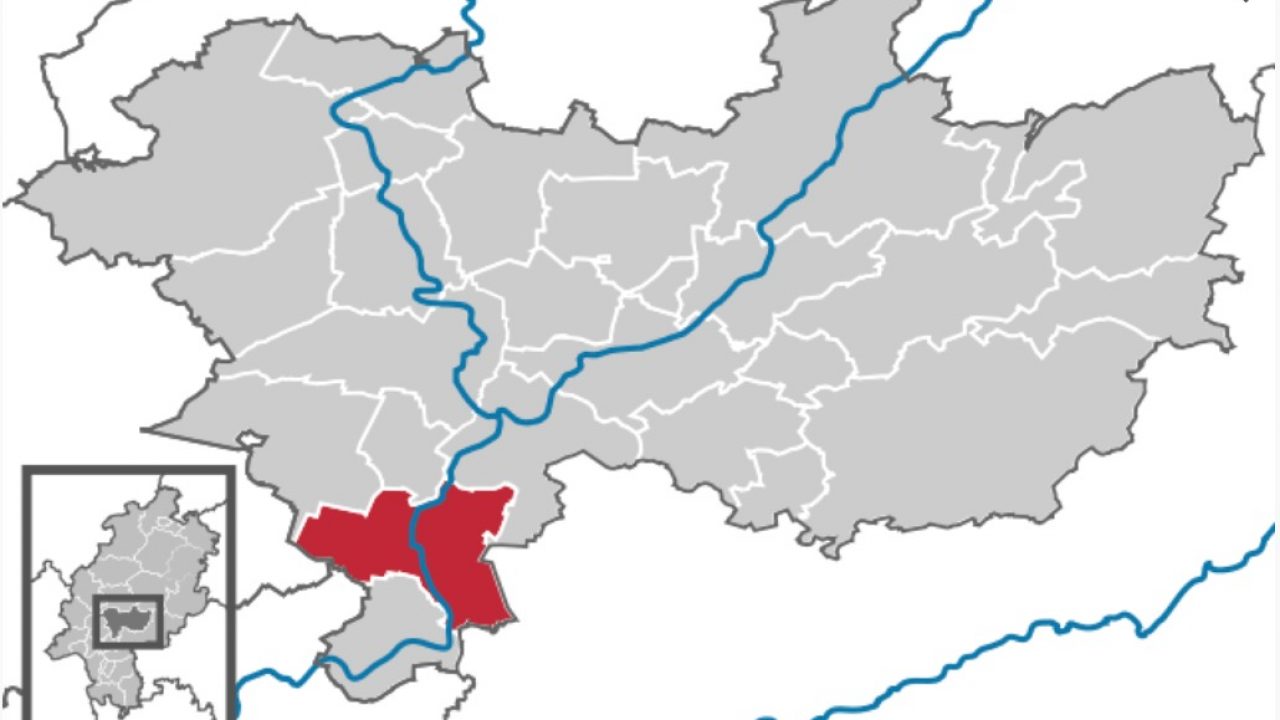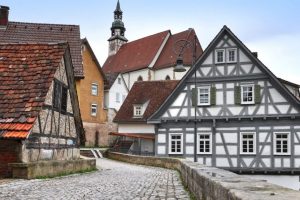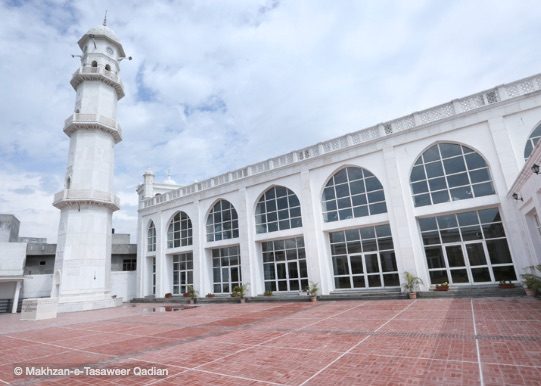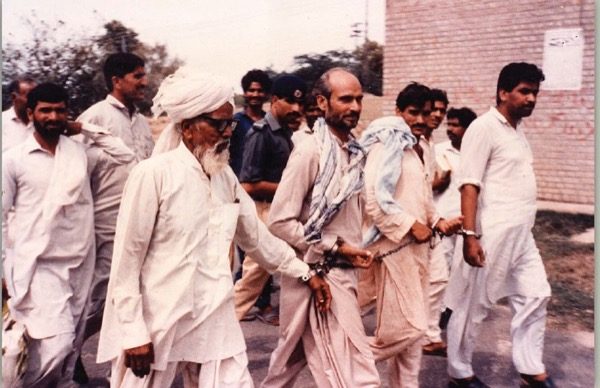
The map shows Karben in the German district of Wetteraukreis. © Wiki Commons
Tariq Mahmood, Canada; Ansar Bilal, Germany
In the aftermath of the Berlin Wall’s collapse and the reunification of Germany, in a small town north of Frankfurt called Karben, a group of Muslims set out on a spiritual mission.
The roots of modern-day Karben stretch back centuries. While Morocco built the world’s first university and Chinese monks invented gunpowder, early records from 827 speak of a small group of people who settled near the River Nidda.
However, history suggests that this area had been populated hundreds of years earlier, when the Romans arrived in Germania (as they called it). The Middle Ages brought a period of prosperity, evident today in the town’s castles and its historic architecture.
Like many towns in the 1800s, Karben was shaped by agriculture, but when the Industrial Revolution began to dominate the West, the town adapted. After the Second World War, reconstruction began, and in 1970, different municipalities joined together to officially form the town of Karben.
But back to that spiritual mission: the Ahmadiyya Muslim Community established its Karben chapter in 1998 with only six families. Since then, the original 25 members have now increased to over 280.
This burgeoning group started to feel the need for a prayer centre. As early as 1999, the Ahmadis of Karben had searched for plots of land to build a mosque, but financial constraints meant that they would have to settle for something smaller.
They would eventually rent an apartment for 13 years, but the community’s growth meant that any larger function or meeting had to be held in the old town hall, made possible with loving cooperation from the town of Karben.
But the Ahmadis of Karben never truly gave up on looking for a mosque, and as their community grew, so too did their ability to make the mosque a reality. Talks with the city of Karben intensified in 2013, and in February of 2014 prayers bore fruition with the purchase of a property called ‘Am Spitzacker 10’.
They had the land, now the brick and mortar were to follow.
On June 17, 2014, His Holiness, the Worldwide Head of the Ahmadiyya Muslim Community, Hazrat Mirza Masroor Ahmad (aba) laid the foundation stone of the mosque, and the Ahmadis of Karben began the construction of the newly named ‘Sadiq Mosque’, or ‘The Mosque of Truth’.
Completed in 2020, and sitting on 824m2 of land, the building has two prayer halls for both men and women, a multipurpose hall, offices, a kitchen, and a guest room.
While the neighbours of the mosque were initially concerned that their peace and privacy would be disturbed by the mosque, they were soon reassured as to the peaceful intentions of the Ahmadiyya Muslim Community.
Indeed, Karben’s Ahmadiyya Community has been become an integral part of the city. The Ahmadiyya Muslim Youth Association regularly organizes campaigns to pick up litter and clean the streets of Karben. Ahmadi Muslims also volunteer at the donation centre, helping refugees who have recently settled for a new life in Germany. In addition, the community regularly has open house days and exhibitions on Islam, where visitors can come and see what it means to be Muslim.
Thus, just like thousands of mosques around the world, Sadiq Mosque strives to share the peaceful teachings of Islam Ahmadiyyat to the corners of the earth so that we can coexist with our fellow human beings in love and harmony.
About the Author: Ansar Bilal Anwar is a graduate from the Ahmadiyya Institue of Languages and Theology UK and is currently serving as an Imam of the Ahmadiyya Muslim Community in Germany. He is the Chief Editor of the German edition of The Review of Religions.
Tariq Mahmood is an Imam of the Ahmadiyya Muslim Community in Canada and serves as Secretary of The Existence Project Team for The Review of Religions.




Add Comment